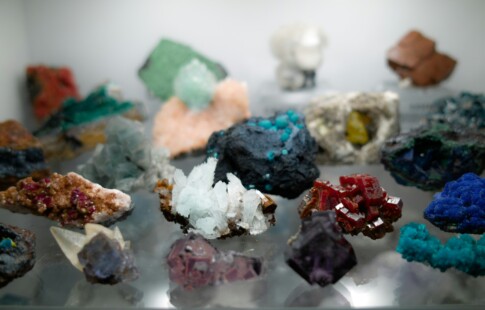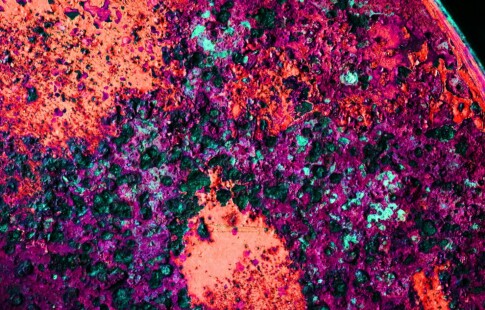
The Importance of Solar Energy in Our Daily Life
We are reader-supported. When you buy through links on our site, we may earn affiliate commission.
All of the life that is on the earth can survive because of the sun. Every day, the energy given from the sun’s rays sustains life. It provides us with heat, light, health benefits and various other applications, like the widely used and known solar energy. Without the sun, the earth would be just a ball of rock without any life forms.
The importance of solar energy in our daily life is more significant than any other thing in your life — besides water and food. Solar energy has been growing as a renewable and alternative energy source. That’s why it’s necessary to understand the importance of the sun’s power because, if you don’t already, you could very well be reliant on the sun for your daily energy needs.
What Is Solar Energy?
What is solar energy anyways? It’s exactly as it sounds — solar energy is the energy you get from the sun. The energy that you see is light, and the energy you feel as heat is the sun. These are both constituted as solar radiation.
All across the earth, this solar radiation varies. Hawaii receives a different amount of sunlight compared to Maine. Even places just a few miles away could experience varying amounts of solar radiation per year.
One of the greatest benefits of solar energy is that it is clean and renewable. Most of the energy that American’s use comes from nonrenewable resources that emit carbon dioxide emissions. However, the sun’s energy can be captured, and in the process of turning it into electricity, very few to zero emissions are released.
Additionally, the sun is renewable. It shines regardless of human processes on earth. Nonrenewable energy sources may run out sometime, but the sun will shine forever. You can always count on the sun to provide you with clean energy.
Solar Energy Then
Solar energy is not a new concept. People centuries ago used the sun for daily activities and tasks. While people didn’t use the sun’s energy how it is commonly used today, it was still an essential source for them to be able to live and survive.
Have you ever watched a survival show where the person used the sun to start a fire or been in a science class where you used a magnifying glass to light a piece of paper on fire? That practice began in the 7th century B.C. The sun’s rays are concentrated with the magnifying glass, which heats something enough to start a fire.
Additionally, humans have used the sun’s heat for various purposes. Bathhouses were popular in ancient Rome. They used the sun to heat the water. Also, the sun’s heat has been used passively to heat homes or provide light, which is still used today.
Humans have used the sun to cook meals as well. The multiple sunlight and solar energy applications have made it possible for humans to thrive on this earth.
Solar Energy Now
Now, solar energy is harvested to power homes and businesses. The amount of sunlight that hits the earth in just over an hour would be enough to power the world’s energy needs for one year. This opportunity is tremendous, but not everyone is on board yet to switch to solar energy, and it would take time to add solar plants to places all around the world.
The solar energy you know of today is provided through two main technologies — photovoltaics (PV) and concentrating solar thermal power (CSP). Photovoltaics is what you commonly see happening in solar panels. When the sun hits the panels, PV cells absorb the energy, which creates electrical charges to provide electricity. CSP uses mirrors to reflect sunlight onto receivers, which generate energy in the form of heat to produce electricity for larger companies.
Only about 2% of the world’s energy consumption comes from solar energy. This is a small percentage in comparison to other forms of energy. However, solar energy continues to grow. The resource is endless and astronomically better for the environment than nonrenewable sources, which is what activists for the environment are trying to prove.
Whether you use the sun’s wealth of energy to power your home or to gain vitamin D, you rely on it every day. Sure, you probably don’t use it to start fires or to heat your shower, but you do need it to eat since animals and plants use its energy to grow. You also need it to function throughout the day. Without the sun’s energy, there would be no you.
The Future of Solar Energy in Daily Life
In the future, the importance of solar energy will be just as high as it has been in the past and is now. As more people adopt renewable energy, the demand for solar technologies will expand. Humans must make the switch to save the planet and to continue to thrive on Earth.
Share on
Like what you read? Join other Environment.co readers!
Get the latest updates on our planet by subscribing to the Environment.co newsletter!
About the author

Jane Marsh
Starting from an early age, Jane Marsh loved all animals and became a budding environmentalist. Now, Jane works as the Editor-in-Chief of Environment.co where she covers topics related to climate policy, renewable energy, the food industry, and more.





